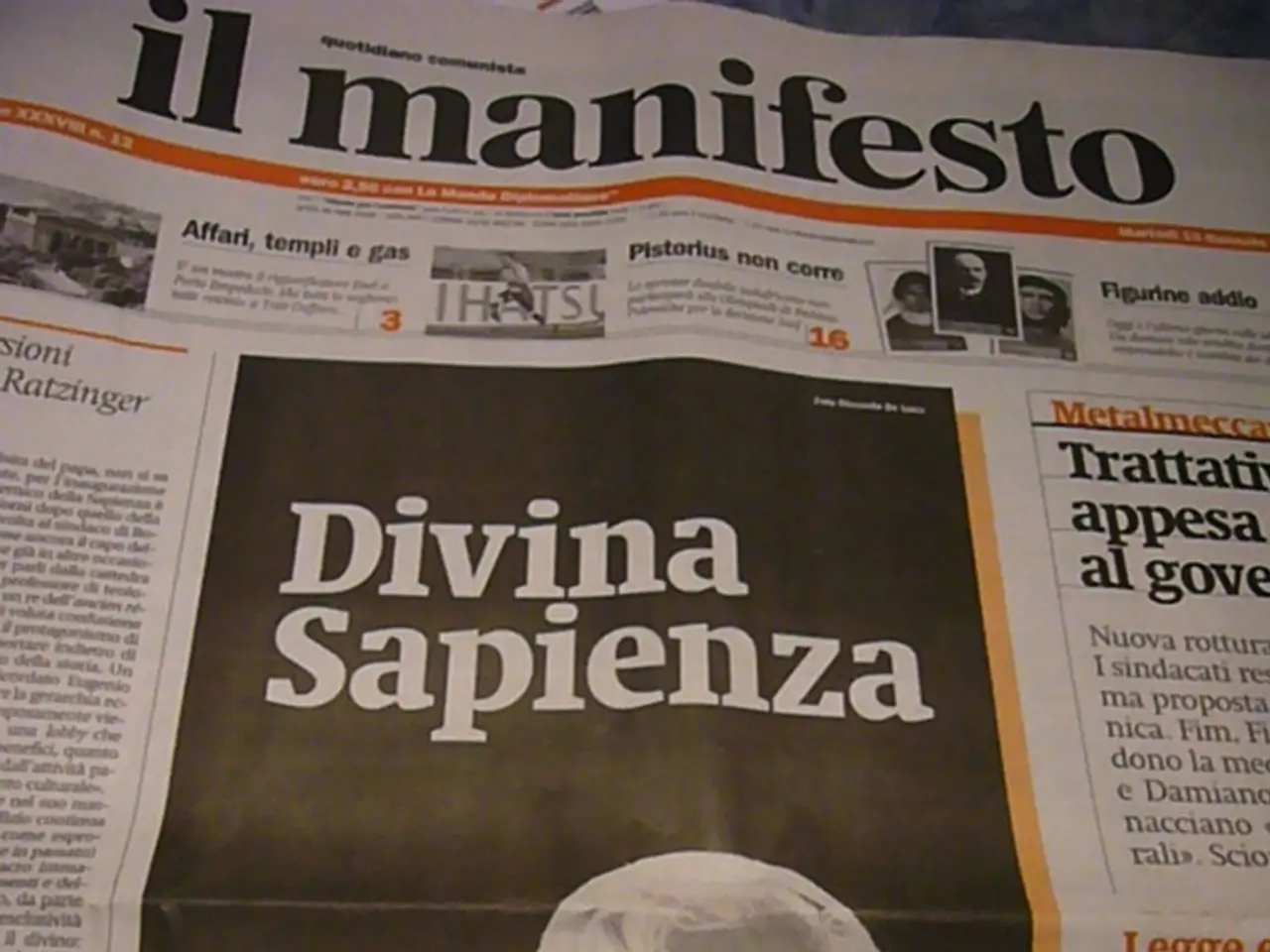Media Morality: Debating Professional Standards
In the world of news, the pursuit of objectivity is a lofty goal, yet one that is often elusive due to the inherent biases of journalists [1]. This reality is reflected in the way information is selected, framed, and disseminated, with political, cultural, or economic influences shaping the narrative [2].
Across the globe, bias can manifest as either commission (inclusion of certain perspectives) or omission (exclusion of crucial information) [2]. For instance, Western media have faced criticism for systematic bias in the coverage of conflicts, such as the war in Gaza, often downplaying casualty figures or adopting narratives that justify specific political actors [4]. In contrast, local or regional outlets may report with more critical scrutiny or different emphases.
Economic pressures and the rise of social media have further complicated the matter. Traditional media models are challenged by social platforms that prioritize viral, emotionally charged content over factual accuracy, leading to the increased spread of misinformation and the creation of "echo chambers" that reinforce existing biases among audiences [1][3]. Unlike traditional journalism, which requires editorial gatekeeping, social media amplifies the visibility of biased or false content through algorithms favouring shareability.
Moreover, practices such as pack journalism, where outlets rely on the same sources and reports without independent verification, can perpetuate bias globally by reproducing partial or slanted narratives [2]. Transparency about information sources is often lacking in news reporting worldwide, further complicating efforts to maintain objectivity.
The interplay of local political pressures, ownership influence, and technological shifts means that bias and its impact on journalistic objectivity vary significantly across regions. While some countries may boast adversarial journalism that critically challenges power, others face censorship, propaganda, or economic constraints that limit impartial reporting [4].
Global digital literacy initiatives and transparency frameworks for AI-generated content are increasingly seen as critical to mitigating bias and promoting trustworthy news in this complex environment [3]. As we navigate this landscape, it is essential to remember that journalism's role is to bridge the gap between different countries and open us up to the world.
References:
- The Guardian
- Pew Research Center
- Reuters Institute for the Study of Journalism
- Committee to Protect Journalists
- In the pursuit of education-and-self-development, understanding the historical biases within news, particularly in the coverage of conflicts, can aid personal-growth by fostering critical thinking and fostering an informed global perspective.
- editorials in reputable publications, such as those from the Committee to Protect Journalists, offer valuable insights on the manifestation of bias in news reporting and provide opportunities for self-reflection on one's own opinions.
- To combat the pervasive effects of bias in journalism, initiatives focused on global digital literacy, as well as transparency frameworks for AI-generated content, can play significant roles in promoting objective, factual news and encouraging trustworthy reporting.




